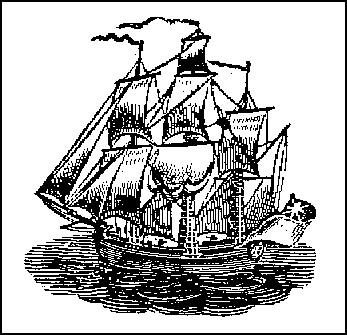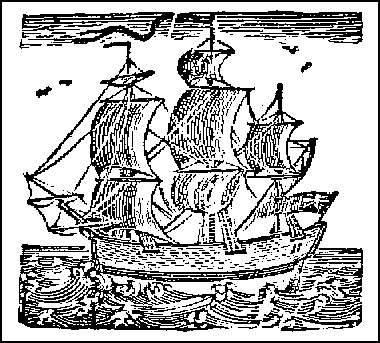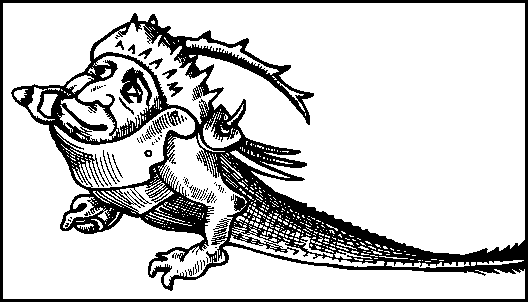Around the World
Captain Joshua Slocum
(Shambhala)
 Captain Joshua Slocum set out in April 24, 1895 to sail around the world. He departed from Boston in a sloop called the Spray. He returned, as he says with his usual laconic accuracy, "at 1 A.M. on June 27, 1898, cast anchor, after the cruise of more than forty-six thousand miles round the world, during an absence of three years and two months, with two days over for coming up."
Captain Joshua Slocum set out in April 24, 1895 to sail around the world. He departed from Boston in a sloop called the Spray. He returned, as he says with his usual laconic accuracy, "at 1 A.M. on June 27, 1898, cast anchor, after the cruise of more than forty-six thousand miles round the world, during an absence of three years and two months, with two days over for coming up."He is kind enough, through his book, to take us along with him --- and it is a bountiful, charming journey. We travel part of the way with a goat (who eats all his charts); we get to meet the governors of innumerable colonial island outposts in the Pacific; we are chased by pirates off the coast of Africa; we have to pass through the Strait of Magellan not once but twice (we are blown back the first time); we eat flying fish that fall on the deck (in butter, yet); we encounter a few lulls but enough storms to cure us of sea-travel forever. And, most wonderful of all, during a bout of desperate sickness, between the Azores and Gibraltar, we find
a tall man at the helm. His rigid hand, grasping the spokes of the wheel, held them as in a vise. One may imagine my astonishment. His rig was that of a foreign sailor, and the large red cap he wore was cockbilled over his left ear, and all was set off with shaggy black whiskers. He would have been taken for a pirate in any part of the world. While I gazed upon his threatening aspect I forgot the storm, and wondered if he had come to cut my throat. This he seemed to divine.
"Seņor," said he, doffing his cap, "I have come to do you no harm." And a smile, the faintest in the world, but still a smile, played on his face, which seemed not unkind when he spoke..."I am one of Columbus's crew, he continued, "I am the pilot of the Pinta come to aid you. Lie quiet, seņor captain," he added, "and I will guide your ship tonight. You have a calentura, but you will be all right to-morrow."
Sailing Alone around the World is the title, but only half of it is you and me and the wry and brave Joshua Slocum on board boat. The rest of the time is spent in or around ports with such exotic names as Pernambuco, Keeling Cocos, Waterloo Bay, Cape Bundooro, Port Angosto, Cape Froward. Wherever he lands, Slocum is wined and dined, asked to lecture, meeting with various high personages --- all of whom, it seems, have heard of the American who is daring to circle the world alone (except for his loving readers) in his thirty-six foot, nine-inch sloop.
 Sailing Alone works because, first of all, to take a three-year journey alone is no mean feat, one that builds its own fascination. This is one man, alone, braving the Strait of Magellan, the Cape of Good Hope, and the thousand storms that bedevil the hapless sailor. It works, moreover, because Slocum is a fine writer, one who is (mostly) free of the baffling nomenclature of the sea. His writing, as well as the journey, are both so elegant that we come to love him, his sturdy sloop, and his quiet ways.
Sailing Alone works because, first of all, to take a three-year journey alone is no mean feat, one that builds its own fascination. This is one man, alone, braving the Strait of Magellan, the Cape of Good Hope, and the thousand storms that bedevil the hapless sailor. It works, moreover, because Slocum is a fine writer, one who is (mostly) free of the baffling nomenclature of the sea. His writing, as well as the journey, are both so elegant that we come to love him, his sturdy sloop, and his quiet ways.
Here we have, for example, a parsimonious New Englander describing how he sold tallow --- which he had scavenged from a wreck --- to the denizens of the Island of Juan Fernandez:
So with a view to business I hooked by steelyards to the boom at once, ready to weigh out tallow, there being no customs officer to say, "Why do you do so?" and before the sun went down the islanders had learned the art of making buns and doughnuts. I did not charge a high price for what I sold, but the ancient and curious coins I got in payment, some of them from the wreck of a galleon sunk in the bay no one knows when, I sold afterward to antiquarians for more than face-value. In this way I made a reasonable profit. I brought away money of all denominations from the island, and nearly all there was, so far as I could find out.
Then this sly aside on the island itself:
Juan Fernandez, as a place of call, is a lovely spot. The hills are well wooded, the valleys fertile, and pouring down through many ravines are streams of pure water. There are no serpents on the island, and no wild beasts other than pigs and goats...
He arrives in the harbor of Apia, Samoa, and is met by three lovely Sirens:
A canoe coming down the harbor, with three young women in it, rested her paddles abreast the sloop. One of the fair crew, hailing with the naïve salutation, "Talofa lee" ("Love to you, chief"), asked:
"Schoon come Melike?"
"Love to you," I answered, and said, "Yes."
"You man come 'lone?"
Again I answered, "Yes."
"I don't believe that. You had other mans, and you eat 'em."
At this sally the others laughed. "What for you come long way?" they asked.
"To hear you ladies sing," I replied.
"Oh, talofa lee!" they all cried, and sang on. Their voices filled the air with music that rolled across to the grove of tall palms on the other side of the harbor and back.
This Slocum is subtle. He says several times that his singular journey was nothing special, but then he tells us of the amazement of visitors who crawl over the Spray looking for the non-existent crew. He only hints at what solitary sailing does to the brain --- like making one see pilots from four centuries past. He says,
I had already found that it was not good to be alone, and so I made companionship with what there was around me, sometimes with the universe and sometimes with my own insignificant self...
And, near the end, just to thicken the broth, he drops the fact that he never bothered to learn how to swim.
